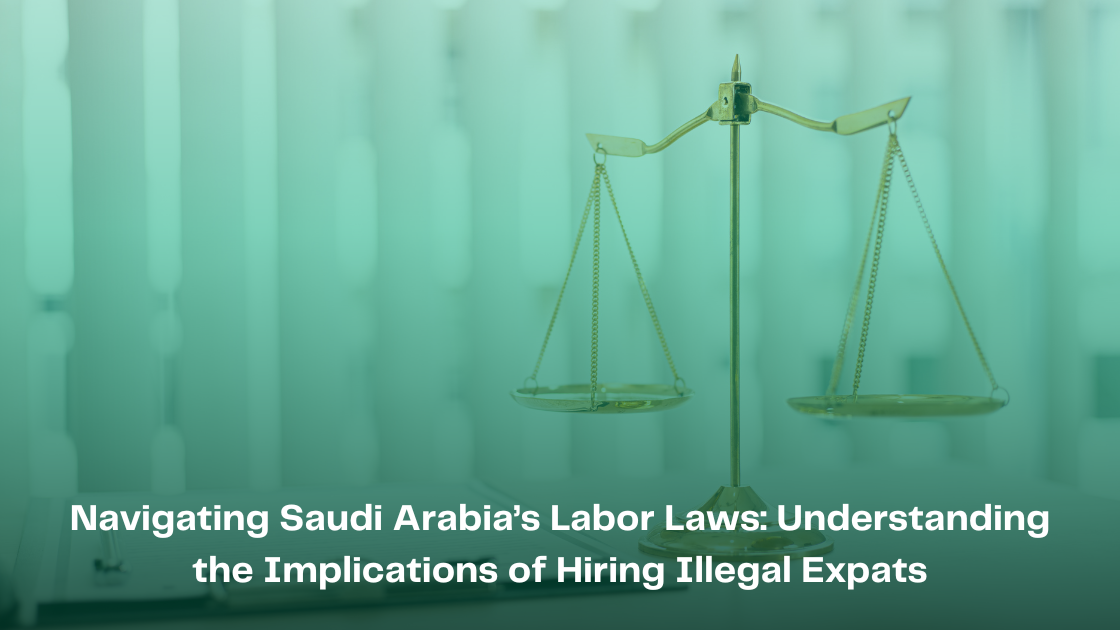In the dynamic economic realm of Saudi Arabia, where tradition meets modernity in a captivating fusion, employers must maneuver through a maze of labor laws with precision and foresight. Among these regulations, one mandate stands out vividly: the stringent penalties imposed on those found guilty of hiring undocumented foreign workers.
In a recent development, Saudi Arabia has escalated its efforts to combat the employment of unauthorized expatriates by imposing hefty fines and severe legal consequences on violators. The penalty for employing illegal expatriates in the Kingdom now stands at a remarkable $27,000 per worker, coupled with the looming threat of imprisonment for the employer.
This significant reinforcement of penalties underscores the Saudi government’s unwavering commitment to prioritizing the employment of its citizens and legal expatriate residents while tackling the challenges associated with undocumented labor head-on. Let’s delve deeper into the rationale behind these measures and their implications for businesses navigating the Saudi labor landscape.

Upholding Compliance and Fairness
At the heart of Saudi Arabia’s rigorous stance on illegal expatriate employment lies a dedication to upholding compliance with labor laws and fostering a fair and transparent labor market. By discouraging the employment of undocumented workers, the government aims to protect the rights of both local and legal expatriate employees, ensuring fair wages, decent working conditions, and access to essential benefits.
Safeguarding National Interests
Moreover, the crackdown on illegal expatriate employment aligns with Saudi Arabia’s broader strategic objectives, encompassing national security, economic stability, and social cohesion. By reducing reliance on undocumented labor, the government can better manage its workforce, alleviate unemployment among citizens, and strengthen national identity and cultural integration.
Business Implications and Responsibilities
For businesses operating in Saudi Arabia, compliance with labor laws is not just a legal obligation but also a strategic imperative. The consequences of hiring illegal expatriates extend beyond financial penalties and legal liabilities; they can damage a company’s reputation, disrupt operations, and erode stakeholder trust. Therefore, enterprises must implement rigorous due diligence processes, including thorough documentation verification and adherence to immigration regulations, to steer clear of legal pitfalls.
Embracing Ethical Employment Practices
Furthermore, beyond mere compliance, businesses have an opportunity to embrace ethical employment practices that prioritize fairness, inclusivity, and social responsibility. By investing in the recruitment, training, and development of local talent, companies can contribute to the Kingdom’s socioeconomic progress while reaping the benefits of a skilled and committed workforce.
Conclusion
In conclusion, Saudi Arabia’s stringent measures against the hiring of illegal expatriates signify a decisive move towards a more regulated and equitable labor market. While the heightened penalties may seem daunting, they serve as a vital deterrent against exploitation, discrimination, and non-compliance. For businesses, navigating the intricate labyrinth of labor laws demands a commitment to transparency, integrity, and ethical conduct. By aligning with the Kingdom’s vision of sustainable development and inclusive growth, enterprises can not only evade legal entanglements but also emerge as responsible corporate citizens driving positive change in the evolving socioeconomic landscape of Saudi Arabia.
